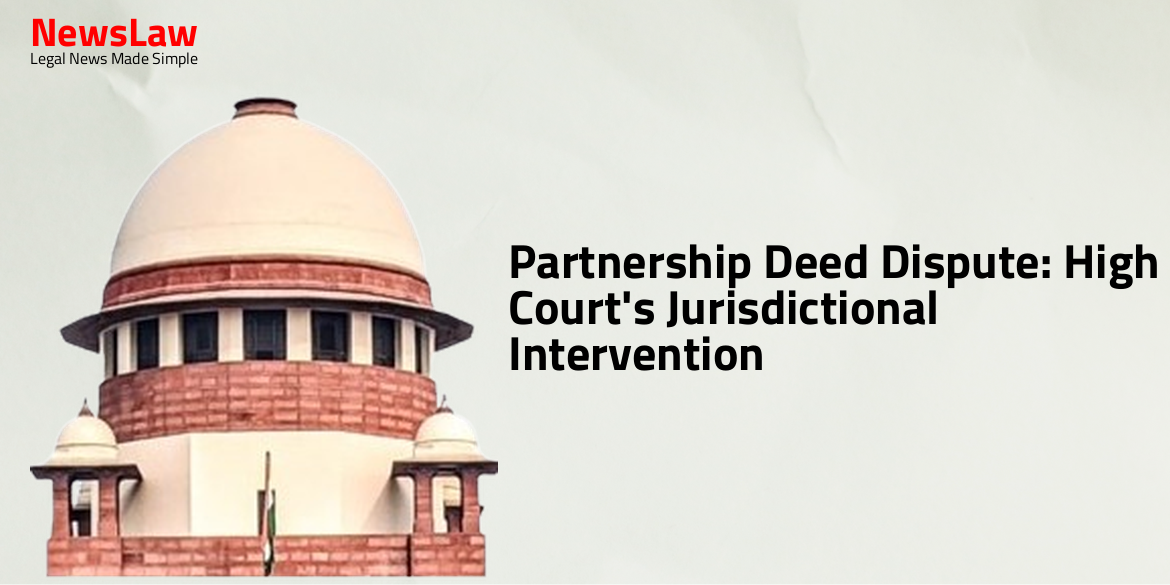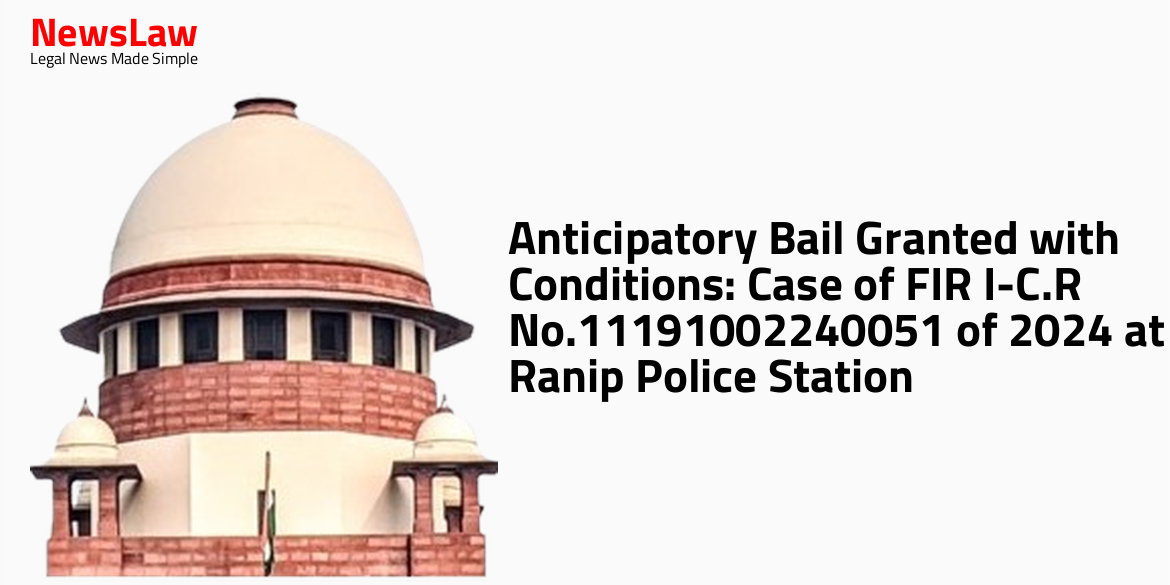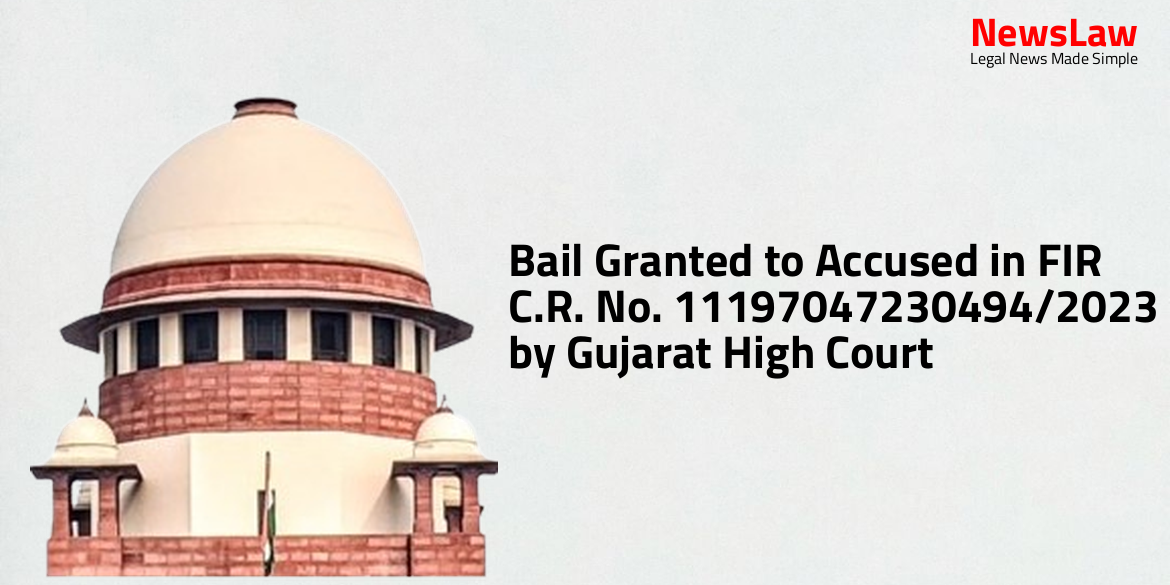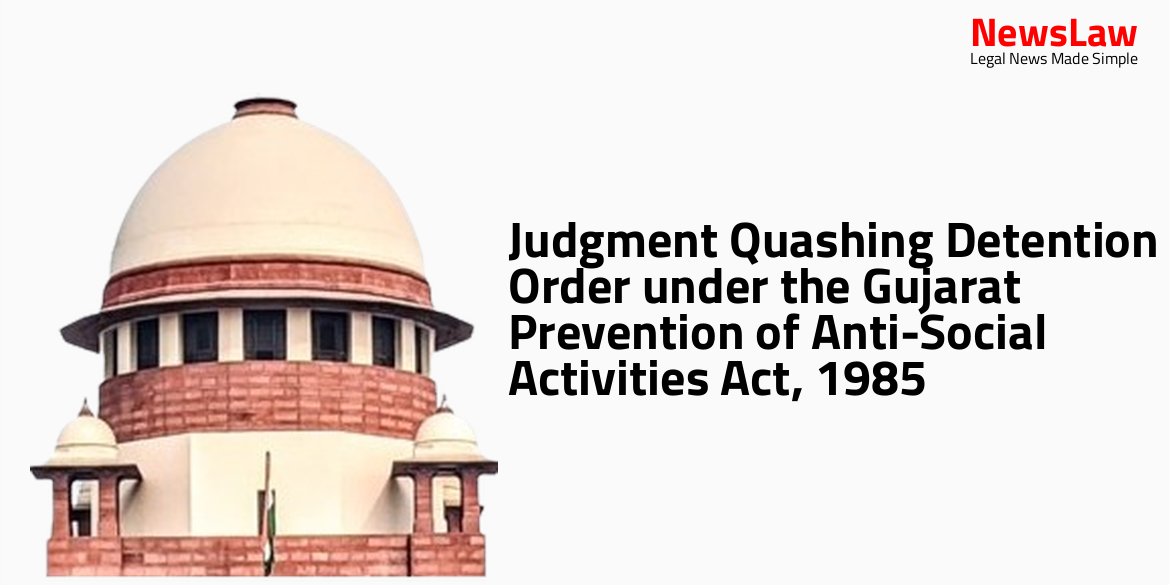Exploring the critical role of the Gujarat High Court’s jurisdictional intervention in a partnership deed dispute. The judgment provides insights into the limits of Article 227 and the corrective nature of legal oversight. Follow the case that sheds light on the complexity of legal proceedings.
Facts
- FAC quashed and set aside the order dated 30 November 2023 passed by the Appellant Bench of Small Cause Court at Ahmedabad below exh 44 in Regular Civil Appeal No 59 of 2017.
- The relief sought to quash and set aside the mentioned order was granted by the FAC.
- This decision was made in response to the prayers presented by the petitioner in the petition.
- The appellant filed an application under O.41 R.27 of the Code of Civil Procedure to present additional evidence in the form of a photocopy of the partnership deed.
- The Division Bench of the Small Causes Court denied the appellant’s request to adduce additional evidence.
- Following the denial of the relief, the appellant filed a petition under Article 227 of the Constitution of India seeking the intervention of the Court.
- The appellant requested a stay on the further proceedings of Regular Civil Appeal No 59 of 2017 during the pendency and final disposal of the present petition.
- The respondents had previously filed HRP Suit No. 1109 of 2005 before the Small Causes Court, Ahmedabad, seeking possession of the suit premises from the defendant.
- The suit was initiated in 2005 and ultimately decreed in 2017.
Arguments
- Learned Advocate Mr. Trivedi for the petitioner relied on the decision in the case of Sanjay Kumar Singh vs State of Jharkhand [2022 (7) SCC 247].
- He argued that the appellate Court erred in deciding the relevancy of the document instead of determining if it was necessary for the judgment.
- He claimed that a jurisdictional error was committed by the Court below in this regard.
- The advocate for the respondent supported the impugned judgment.
- The defence of partnership was not mentioned in the appellant’s written statement initially.
- The partnership deed was introduced belatedly in the proceedings of 2005.
- The lower court rightly rejected application Exh.44 regarding the partnership deed.
- Referral made to the scope of supervisory jurisdiction under Article 227 of the Constitution of India.
- Citing the case of Garment Crafts Vs. Prakash Chand Goel (2022) 4 SCC 181 regarding the nature of Article 227 jurisdiction.
Analysis
- The general principle is that the appellate court should not travel outside the record of the lower court and cannot take any evidence in appeal.
- The High Court can set aside or ignore findings of an inferior court if there is no evidence to justify them or if the finding is so perverse that no reasonable person could come to the same conclusion.
- In a suit filed in 2005, the unsuccessful defendant applied to produce additional evidence in 2023, almost 18 years later, without sufficient reasons stated in the application to justify admitting such secondary evidence at the appellate stage.
- The appellant did not sufficiently explain under what defense they wanted to produce the deed of partnership.
- If additional evidence removes doubt over the case, has a direct impact on the main issue, and is in the interest of justice, it may be allowed.
- The impugned order is contrary to law primarily for deviating from the limited jurisdiction exercised by the High Court under Article 227 of the Constitution of India.
- The High Court does not act as a first appeal court but exercises supervisory jurisdiction, and does not reevaluate evidence or facts unless specific conditions are met.
- The conditions for admitting additional evidence include the trial court refusing evidence that should have been admitted and the party proving due diligence in producing the evidence.
- In this case, there was no due diligence on the part of the appellant, and neither condition for admitting additional evidence was specified.
- The petition is dismissed as it lacks merit and does not warrant interference under the limited jurisdiction.
- The appellate court should dispose of the pending appeal from 2017 as soon as possible.
- Order 41 Rule 27 of CPC allows the appellate court to take additional evidence in exceptional circumstances, not as a right of the parties.
- The High Court does not have unlimited prerogative to correct all kinds of decisions made within subordinate court jurisdictions.
- The exercise of power under Article 227 involves a duty on the High Court to keep inferior courts and tribunals within the bounds of their authority.
- The power under Article 227 is to be sparingly exercised, especially in cases where there is no evidence to justify a decision or the finding is so perverse that no reasonable person could come to the same conclusion.
- The discretionary relief under Article 227 must be exercised to prevent a miscarriage of justice.
- The High Court should not substitute its own decision on facts and conclusions for that of the inferior court.
- The jurisdiction under Article 227 is corrective in nature to rectify grave dereliction of duty, flagrant abuse, or violation of fundamental principles of law or justice.
Case Title: M/S MOTILAL PUNAMCHAND Vs. SHIRISHBHAI KASTURCHAND SHAH
Case Number: R/SCA/6634/2024



